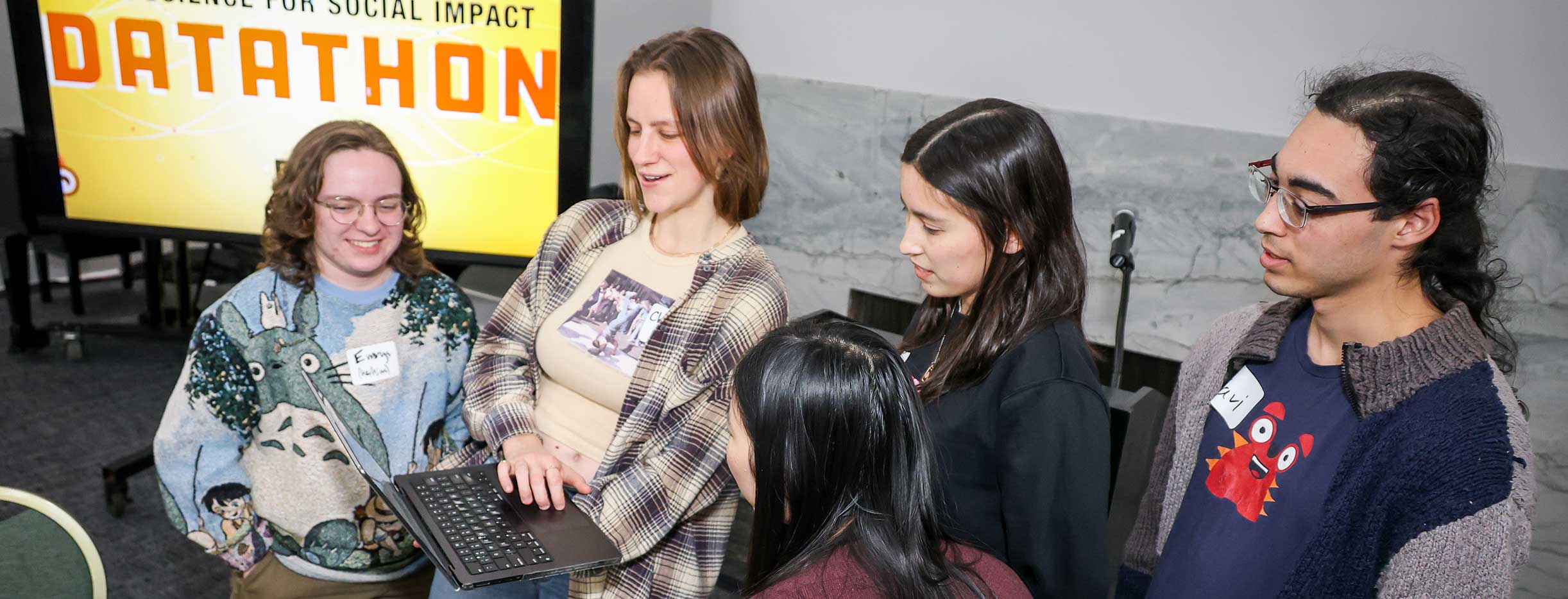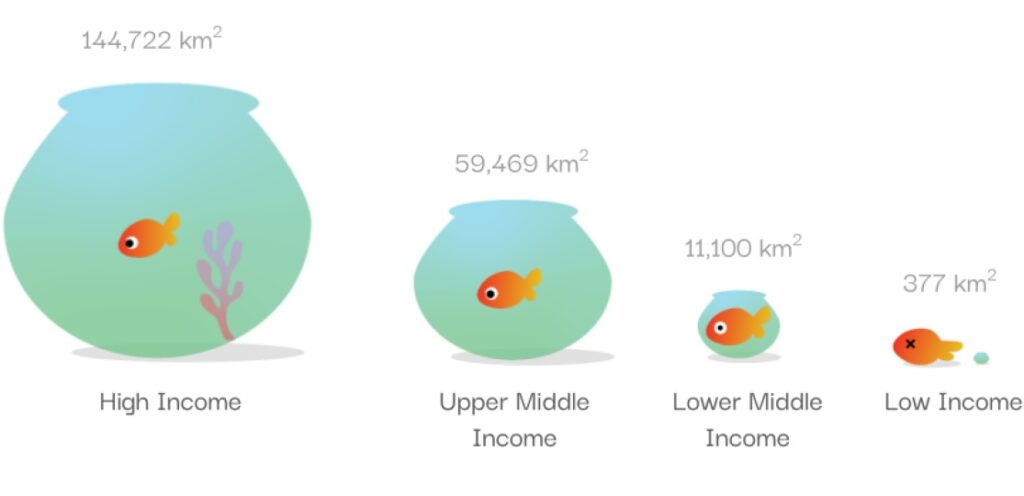
Clearly and Ethically Communicating Data
A one-day datathon challenged students from across The Claremont Colleges to explore and visualize data while learning from experts about the far-reaching implications of data science. The event was organized by HMC’s Innovation Accelerator Laboratory for Data Science and Social Impact, whose members include HMC professors in mathematics, computer science and climate science.
The DSSI seeks beneficial ways to instruct students, stakeholders and visiting faculty who want to educate people on how to do data science that is responsible, with an eye on context. The datathon took a picture-is-worth-a-thousand-words approach to data visualization, with an emphasis on honesty and ethics. “We brought in speakers who can visualize data as a key component of ethical and impactive data science,” said Susan Martonosi, mathematics professor and former chair of the faculty.
“At Harvey Mudd, we believe that if we cannot communicate our results in a way that is impactful and understandable, then the job is not done,” said Xanda Schofield ’13, assistant professor of computer science. “The datathon and having speakers active in social work was meant to give a holistic understanding of how we reach people through our work.”

(Income brackets calculated from The World Bank using gross national income per capita; data from 2025.)
Event speakers addressed the importance of data presentation methods. Mine Dogucu, professor of teaching at UC Irvine, focuses on creating statistics and data science classrooms and curricula that are accessible, inclusive and relevant across all sciences. The strategic data and evaluation director at the Los Angeles Unified School District Jessica Bogner and her students create visualizations for research projects that show accurate data, specifically relating to wildfires. “But instead of relying on traditional methods of visualizations, Bogner challenges us to think about who our audience may be and how to best display information to them,” said Lynn Kirabo, the Maria M. Klawe Assistant Professor of Climate and Computer Science.
For the datathon, student teams used World Bank data from the UN Millenium Development Goals to create compelling visualizations that illustrate complex global issues. The work of 11 teams of 31 students was judged by DSSI team members and President Harriet Nembhard. Mudders Kavi Dey ’26, Alicia Luo ’26 and Alyssa Sawyer ’26 received first place for their series of visualizations on the relationship between income and marine environmental protections. The team was inspired by Dogucu’s talk about how displaying data in unconventional and creative ways can often communicate a stronger message than the traditional ways.
Sawyer said, “Mudd has helped us grow as science communicators. From research opportunities to classes like Math Forum and Public Speaking for Science and Citizenship, there have been a lot of opportunities to practice presenting technical topics.”